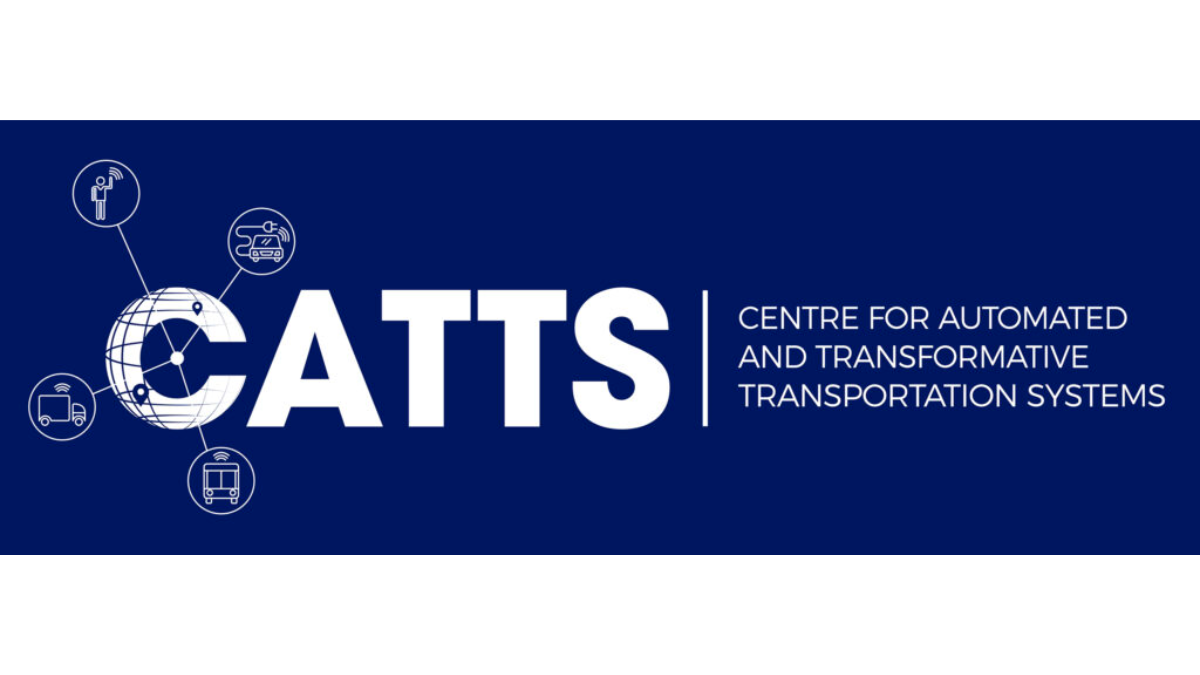The Centre for Automated and Transformative Transportation Systems (CATS) hosted its sixth annual symposium virtually on July 6, 2023. CATTS is a member research centre of Mobility Network.
The symposium’s program featured sessions on traffic management and control, public transportation, transportation planning, transportation and air quality, freight modelling and logistics, and computer vision.
CATTS’ research associate, Dr. Toka Muhammad moderated the symposium’s sessions.
Featured guest speakers
Prof. Baher Abdulhai, professor at the Department of Civil and Mineral Engineering, the University of Toronto, and the co-director of CATTS, gave a keynote presentation on “Combatting Escalating Congestion: What ITS and AI can do, cannot do, and what to expect.”
U of T presentations
Over the course of the day, sixteen U of T students and postdoctoral fellows from the Department of Civil & Mineral Engineering presented their recent and/or ongoing research.
1. Traffic Management and Control, by Baher Abdulhai
- Using AI-Based RM to Address Long Heavily Congested Freeways: A Case study on the QEW-Omar ElSamadisy
- Headway Control for Autonomous Driving: A Case Study on the QEW- Lina Elmorshedy
- Adaptive Traffic Signal Control: State-of-the-Art E-MARLIN Transformer- Xiaoyu Wang
- SECRM: A safe, Efficient and Comfortable Automated Driving Model with RL- Tianyu Shi
2. Public Transportation, by Amer Shalaby
- Advanced TSP- Wenxun Hu
- Smart route management strategies-Kareem Othman
- SPUR: Developing a Modular, Data-Driven Mesoscopic Simulation Platform to Analyze Stochastic Railway Networks-Peter Lai
- Applications of generative AI to transit route management- Jiahao Wang
3. Transportation Planning
a. Mobility as a service (MaaS), by Eric Miller
- Understanding the Dynamics of Vehicle for Hire Services in the Greater Toronto Area: A Comprehensive Study of Demand and Supply Patterns- Nael Alsaleh
- Exploring Key Stakeholder Perceptions of Zero Occupant Vehicles (ZOVs)’s Impacts on Urban Areas, Lisa Losada Rojas
b. Overview of AV and related MaaS research by the Travel Demand Modelling Group, by Khandker Nurul Habib
- Modelling travel time perceptions towards autonomous vehicles in the GTHA- Felita Ong
- Passively Collecting Travel Demand Data: Using Google Location History to Construct Daily Travel Diaries- Kaili Wang and Melvyn Li
4. Transportation and Air Quality by Marianne Hatzopoulou
- Implications of freight electrification scenarios for GHG emissions, air quality, health, and environmental justice-Sara Torbatian
- Equity in the distribution of truck emissions in Toronto: Evidence from the past decade-Jad Zalzal
5. Freight Modelling and Logistics, Matthew Roorda
- A simulation study of the performance of a person-following delivery robot in crowded pedestrian environments -Farah Ghazzawi
6. Computer Vision
- Computer Vision - Status update on North York Traffic Testbed- Kartikeya Bhargava
About CATTS
The Centre for Automated and Transformative Transportation Systems (CATTS) is a research centre for analyzing and quantifying transformation within transportation systems in the era of advanced technologies and automation.
The CATTS is the first research centre of its kind to address the large-scale impacts of disruptive transportation technologies and services on our cities. It is a multi-disciplinary multi-sector collaboration that gathers academia, industry, technology experts, and the government.
The centre was created to guide societal transformation in a positive direction, avoid the emergence of counterproductive travel trends, and emboldens Ontario cities as leaders in North America and the world.
We aim to build the foundational analytical tools necessary to measure and assess the performance of a full-scale regional transportation system from three perspectives:
- Quantifying the large-scale effects and implications of emerging transformative transportation technologies via a set of analytical investigations, surveys, and modelling pertinent to passenger and freight demand and dynamic infrastructure systems (supply).
- Developing a set of tools to assist and enable positive transformation, encourage Mobility as a Service (MaaS), multi-modal integration, smart infrastructure control and management, and curb space management in busy urban cores.
- Guiding the transformation process toward economically, socially, and environmentally sustainable smart cities.
CATTS has finished the first stage of its research, building the analytical foundation of transformative transportation, and is now preparing for its next phase; CATTS Next

